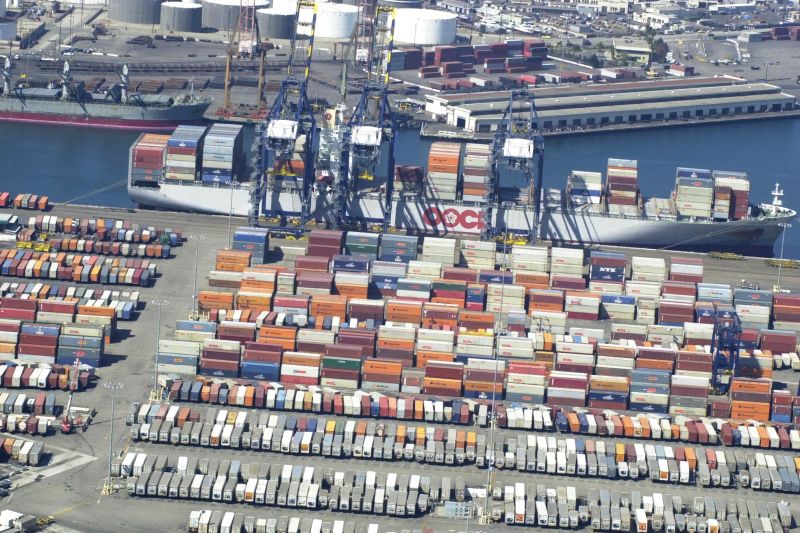
The West Coast ports labor dispute has gone from bad to worse, and it’s time for the president to make clear to the parties the need to find a deal.
The Los Angeles Times reports on the situation on the West Coast:
West Coast ports — including the nation’s busiest in Los Angeles and Long Beach — will partially shut down for four days as shipping companies plan to dramatically slash dock work amid an increasingly contentious labor dispute.…Congestion at the ports has delayed shipments from Asia and has hurt businesses that rely on parts and supplies from China and elsewhere. Some businesses are rerouting goods by air or through ports on the East Coast, but those work-arounds have been expensive. Los Angeles and Long Beach ports account for about 40% of the nation’s incoming container cargo. In 2013, the two ports handled roughly $400 billion worth of goods.
A bipartisan group of Members of Congress held a press conference today urging the Pacific Maritime Association (PMA) and the International Longshore and Warehouse Union (ILWU) to come to an agreement.
But as U.S. Chamber President and CEO Tom Donohue noted in a statement earlier this week, Presidential leadership is needed to end the crisis:
The Chamber is increasingly hearing from companies and industries whose business operations are being adversely affected by the serious slowdown surrounding the labor contract negotiations at the West Coast ports. This is now a growing crisis that is impacting farmers, retailers, and manufacturers throughout the country, as well as trucking and railroad companies who have far less cargo to move. The time is long past for the parties to agree on a contract. President Obama should urge the parties to quickly resolve their differences, get back to work, and keep the ports open.
As noted in a post on the situation, last week, “The shipping bottleneck has disrupted companies’ supply chains, making it harder to export and import goods.”
An agreement needs to happen soon to get goods moving. Randy Johnson, U.S. Chamber Senior Vice President of Labor, Immigration, and Employee Benefits says, “This situation is really causing problems for many of our members in several different industries. We need the parties to find a deal—we needed them to do this months ago. The longer this drags on, the more severe and long lasting the impact is going to be.”
If there is a shutdown, the U.S. Chamber will be requesting that the president invoke the emergency procedure of the Taft Hartley Act, but we hope this is unnecessary and the parties resolve their differences.
— Containers stand idle as a ship waits to unload at the Port of Long Beach. Photo credit: Susan Goldman. Bloomberg.
Disclaimer: Articles featured on Oregon Report are the creation, responsibility and opinion of the authoring individual or organization which is featured at the top of every article.

